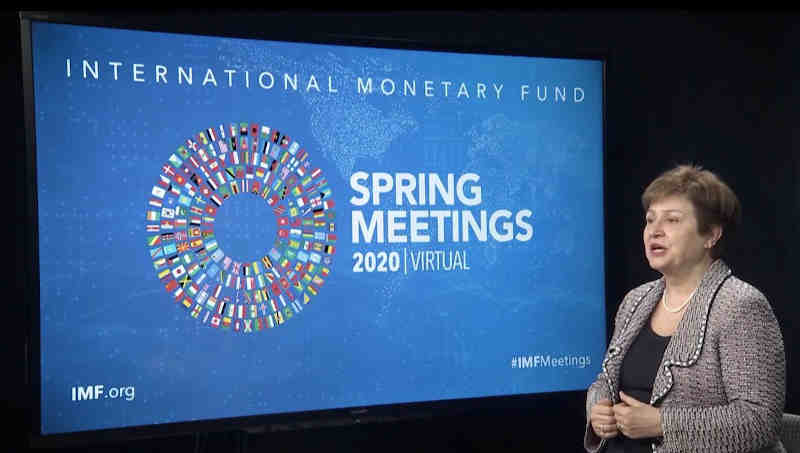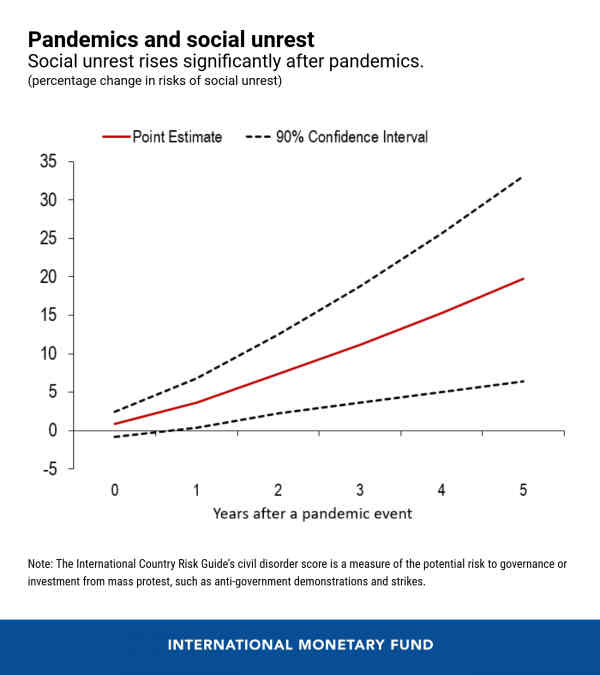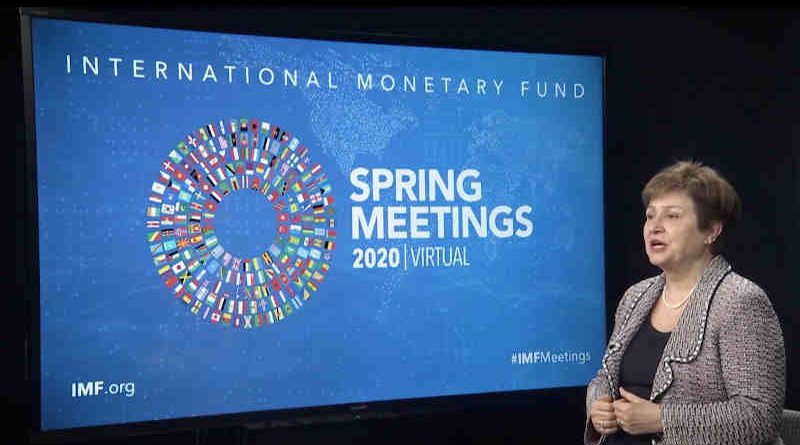Pandemics Can Fuel Social Unrest: IMF

Without policy measures, the Covid-19 pandemic will likely increase inequality, trigger social unrest, and lower future output in the years to come.
A new research by the International Monetary Fund (IMF) reveals that pandemics can cause major social unrest particularly in those countries which fail to deal with the disease.
In the months and years following previous pandemics, the countries most affected saw a rise in social unrest, the IMF research finds. Based on this historical trend, the Covid-19 pandemic could pose a threat to the social fabric in many countries.
The IMF has published these findings in a new IMF staff working paper after analyzing the effect of past major pandemics in 133 countries over 2001–18. These pandemics are SARS in 2003, H1N1 in 2009, MERS in 2012, Ebola in 2014, and Zika in 2016.

According to the IMF analysis, social unrest increased consistently following each of these outbreaks. The International Country Risk Guide’s civil disorder score, which is a high frequency and cross-country measure of social unrest, increased significantly, on average, one year after the pandemic.
In its paper, the IMF has analyzed the dynamics among past major pandemics, economic growth, inequality, and social unrest. It argues that past major pandemics, even though much smaller in scale than Covid-19, have led to a significant increase in social unrest by reducing output and increasing inequality.
The paper suggests that without policy measures, the Covid-19 pandemic will likely increase inequality, trigger social unrest, and lower future output in the years to come.






